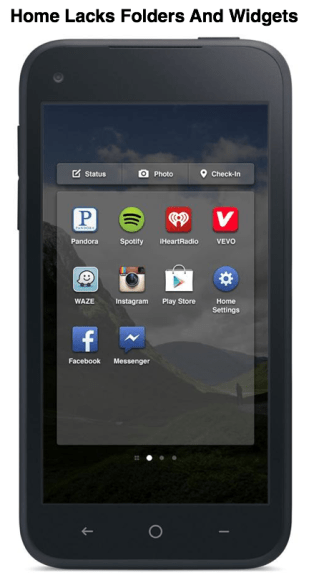Google Reader is meeting its end in just a few weeks, and there’s no doubt it’ll be traumatic for users of the beloved service. There are a variety of replacement options already on the market, with more expected to launch in the next couple of weeks, and I’m curious to see what rises to the top.
But one replacement product that I wouldn’t use? An RSS news reader from Facebook.
We’ve seen that Facebook has no problem quickly launching products to try to disrupt a growing market, even if it’s not a sure thing they’ll succeed. (Just look at Poke, the company’s challenge to Snapchat.) And between the company’s launch of hashtags last week to improve the real-time nature of the news feed (even if I think hashtags are better saved for ironic conversation), and the addition of new tabs for following people on the new News Feed, Facebook clearly has ambitions to be more of a resource for news. (After all, brands and advertisers love the real-time nature of constantly updated live events and news.)
But as a hardcore Google Reader user, I have no interest in using an RSS reader replacement from Facebook, and there are several reasons why it seems like an ill-suited product for the social platform.
The appeal of Google Reader was that it was a reliable tool for importing and consuming news — one that wasn’t influenced by trends. When I subscribe to a feed, I want to read everything in that feed. With Twitter and Facebook at my disposal, I don’t need another site to see articles that my friends are sharing. I rely on my RSS feeds for work to catch every item of technology news flowing across the internet every day — I need to see everything, not just what’s popular, to do my job. And I follow probably 20-30 blogs about topics like fashion or cooking, where the writers post infrequently but where want to read every one of their posts.
So why wouldn’t I look to Facebook to re-create this experience? Probably because I don’t want my RSS reader to be social — I have Twitter and the existing Facebook for social news. I don’t want all my friends to know that I read fashion blogs on a daily basis. I don’t want the news I read to influence the ads I see on Facebook, or the stories that show up in my news feed. As the Washington Post’s auto-sharing from its social reader experiment showed, people don’t want everyone to know what they’re reading.
Of course, we don’t know if Facebook is launching an RSS reader at all, let alone what it would look like. The company did not have any comment on the matter when we asked. But social sharing is embedded in Facebook’s DNA, so it’s a reasonable assumption that any RSS reader put out by Facebook would have serious social attributes, with a heavy emphasis on sharing.
Sure, there’s room for social news on Facebook. On my account, I “like” a lot of news outlets, as well as journalists and celebrities and business figures. In fact, a quick glance at my news feed would show mostly news stories, and very few posts from my friends. It’s a great way to see what’s popular right now in the news, or to catch an older story I might have missed on Twitter. But social news is a distinctly different experience from what people knew and loved about Google Reader — and that’s a distinction that a company like Digg seems to understand.
As I wrote previously, Digg’s new RSS news reader will likely incorporate some social features but will also serve as a separate product from the popular stories posted on Digg.com. And while Google Reader used to have much-beloved social features, these were complements, not a replacement, for the feeds themselves.
Would it make perfect sense for Facebook to create a dedicated spot on its site for news? Sure. But that likely wouldn’t keep me from searching for my next RSS relationship.































